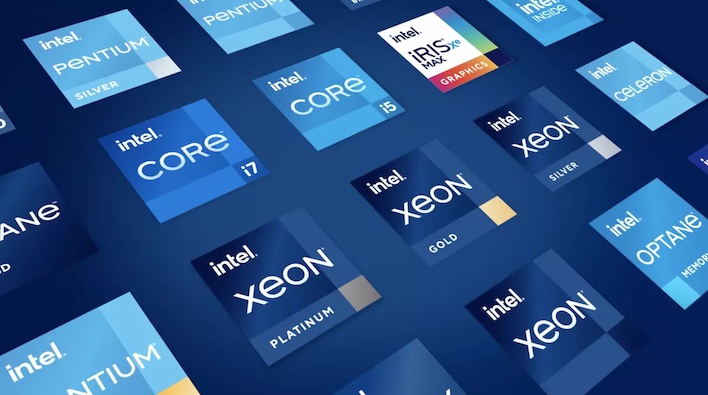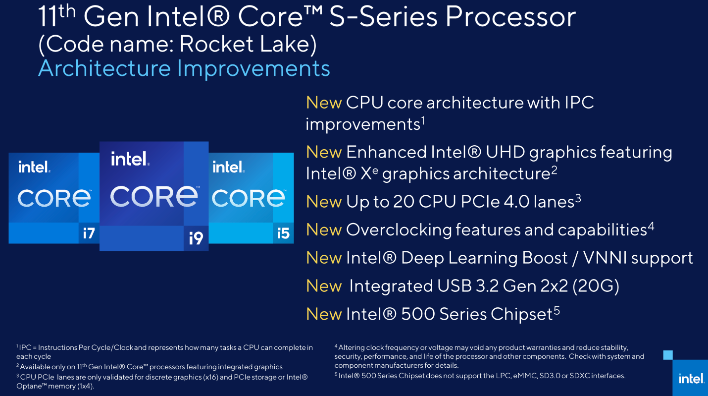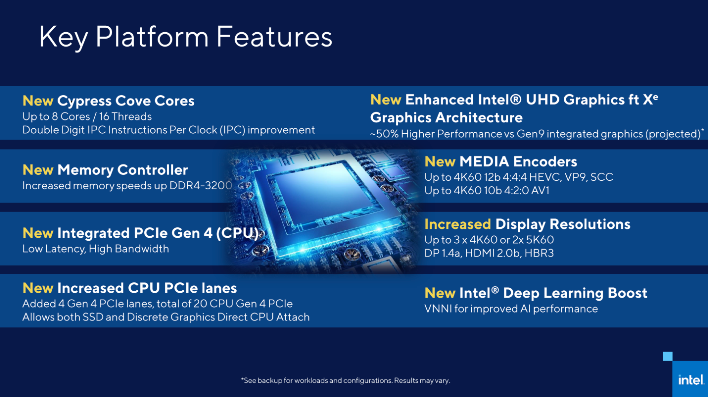Intel Confirms Rocket Lake-S Tops Out At 8-Cores With Double-Digit IPC Uplift And DDR4-3200 Support

At the heart of Rocket Lake-S will be new 14nm Cypress Cove CPU microarchitecture, which is in essence a back-port of 10nm Ice Lake microarchitecture. For those keeping score, this is the first major microarchitecture shift for Intel desktop processors since 14nm Skylake was introduced way back in 2015. However, unlike Comet Lake-S, which was available in up to 10-core/20-thread configurations, Rocket Lake-S will top out at 8 cores and 16 threads.

This regression in total cores will probably put Intel at a disadvantage compared to AMD's Ryzen 5000 family, which will be available in 6-core/12-thread, 8-core/16-thread, 12-core/24-thread, and 16-core/32-thread configurations (Ryzen 9 5950X). Despite this, Intel is promising a double-digit increase in instructions per clock (IPC), which should lead to an overall performance boost compared to Comet Lake-S.

As for the Iris Xe graphics (which was also found in Tiger Lake mobile CPUs), Intel is claiming up to 50 percent uplift in performance compared to the UHD graphics found within Comet Lake-S. Other items of note with Rocket Lake-S include up to 20 PCIe 4.0 lanes (an upgrade over the previous 16 PCIe 3.0 lanes), DDR4-3200 memory support (up from DDR4-2966), USB 3.2 support, Intel Deep Learning Boost/VNNI support, and new overclocking features and capabilities (which haven't yet been disclosed). Intel will also be introducing new 500 Series chipsets to take full advantage of all of the capabilities of Rocket Lake-S, although existing 400 Series motherboards will still support Rocket Lake-S with a BIOS update.
Intel's Rocket Lake-S will be arriving on the scene well after the Ryzen 5000 Series, which launches next month. Ryzen 5000 is no slouch either, promising a 19 percent uplift in IPC over Ryzen 3000, and early benchmarks shows that Intel has its work cut out for it to take on the likes of the Ryzen 9 5950X and even the Ryzen 7 5800X.

